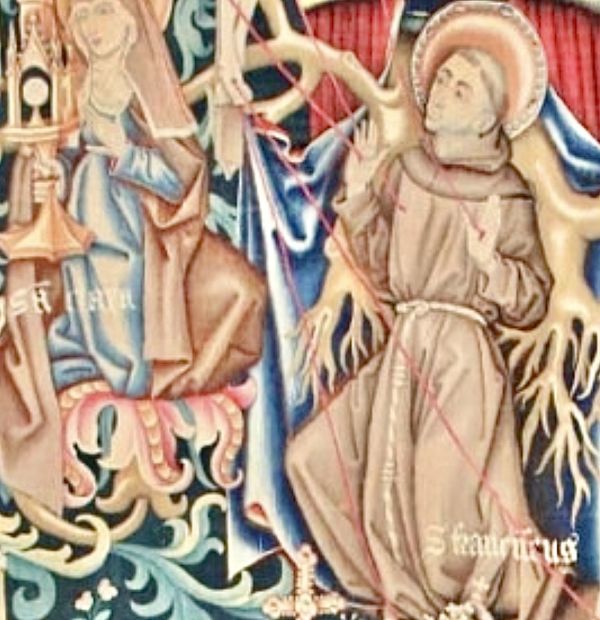Today's Gospel passage highlights the spiritual intelligence of those who, like Francis, place at the service of the Kingdom everything that the Most High has entrusted to them in their bare existence.
Those who have talents to invest in making the Gospel take root will find them increased by the Lord's long-suffering.
Francis, who called himself "simplex et idiota" (simple and stupid), changed completely after meeting Christ, and everything he had previously longed for ended up being detestable to him, while everything he had previously abhorred became sweetness for his soul.
Walking through the Franciscan sources, a chisel of events and of the Saint's deep and solid vocation, we read:
"Many, both noble and common, clerics and lay people, docile to divine inspiration, went to the Saint, eager to join him forever and follow his guidance.
And to all of them, like a rich source of heavenly grace, he gave the life-giving waters that make virtues blossom in the garden of the heart.
A truly glorious artist and master of evangelical life, through his example, his Rule and his teaching, the Church of Christ is renewed in its faithful, men and women, and the threefold militia of the elect triumphs" (FF 384).
We also learn that "he became a herald of the Gospel. He began, in fact, to travel through towns and villages, proclaiming the kingdom of God, not relying on persuasive words of human wisdom, but on the demonstration of the Spirit and of power [...]
From then on, the vineyard of Christ began to produce shoots fragrant with the sweet smell of the Lord, and abundant fruits with sweet flowers of grace and holiness" (FF 1072).
The Poor Man of Assisi had made the gifts he received bear fruit in order to reach as many souls as possible through the power of the Spirit of God and to make known the saving value of the Word made flesh.
Saint Clare, too, was a fruitful tree in her life, laden with good fruit, as Pope Alexander defined her in the Bull of Canonisation "Clara claris praeclara" (1255).
"This was the tall tree, stretching towards the sky, with outstretched branches, which produced sweet fruits of religion in the field of the Church, and in whose pleasant and pleasant shade many followers flocked from all over, and still flock to taste its fruits" (FF 3294).
These are the eloquent sign of a life truly given to God and to their brothers and sisters.
«By their fruits you will recognise them [...] so every good tree bears good fruit, but the bad tree bears bad fruit» (Mt 7:16-17)
Wednesday of the 12th week in Ordinary Time (Mt 7:15-20)












